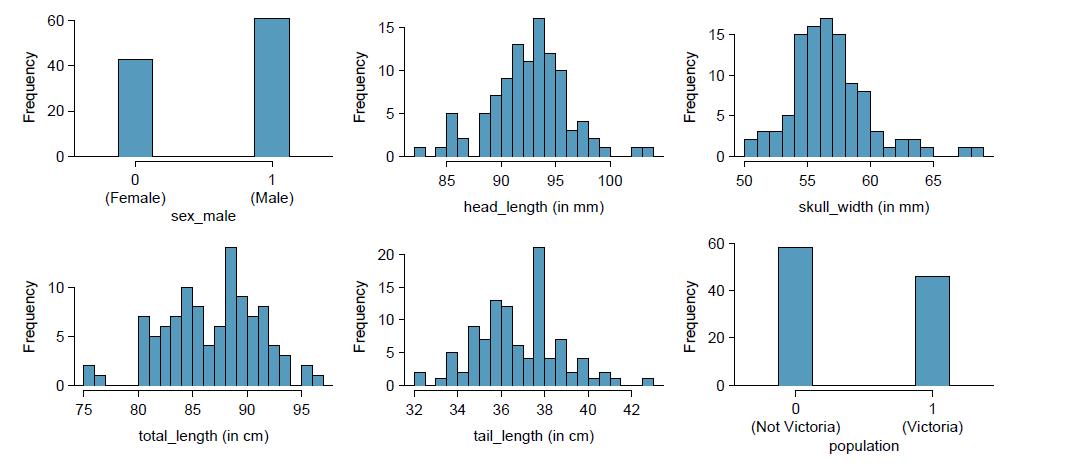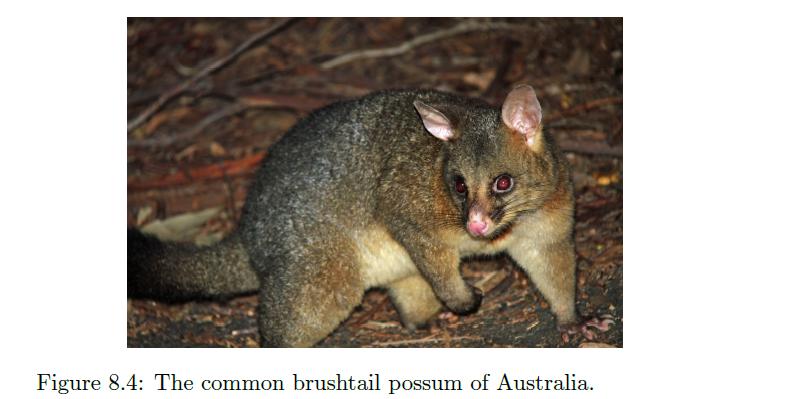Question: A logistic regression model was proposed for classifying common brushtail possums into their two regions in Exercise 9.15. The outcome variable took value 1 if
A logistic regression model was proposed for classifying common brushtail possums into their two regions in Exercise 9.15. The outcome variable took value 1 if the possum was from Victoria and 0 otherwise.
(a) Write out the form of the model. Also identify which of the variables are positively associated when controlling for other variables.
(b) Suppose we see a brushtail possum at a zoo in the US, and a sign says the possum had been captured in the wild in Australia, but it doesn't say which part of Australia. However, the sign does indicate that the possum is male, its skull is about 63 mm wide, its tail is 37 cm long, and its total length is 83 cm. What is the reduced model's computed probability that this possum is from Victoria? How confident are you in the model's accuracy of this probability calculation?
Data from Exercise 9.15
The common brushtail possum of the Australia region is a bit cuter than its distant cousin, the American opossum (see Figure 8.4 on page 307). We consider 104 brushtail possums from two regions in Australia, where the possums may be considered a random sample from the population. The first region is Victoria, which is in the eastern half of Australia and traverses the southern coast. The second region consists of New South Wales and Queensland, which make up eastern and northeastern Australia. We use logistic regression to differentiate between possums in these two regions. The outcome variable, called population, takes value 1 when a possum is from Victoria and 0 when it is from New South Wales or Queensland. We consider five predictors: sex male (an indicator for a possum being male), head length, skull width, total length, and tail length. Each variable is summarized in a histogram. The full logistic regression model and a reduced model after variable selection are summarized in the table.


Estimate SE 33.5095 9.9053 -1.4207 skull_width -0.2787 0.1226 total_length 0.5687 0.1322 tail_length -1.8057 0.3599 (Intercept) sex_male Z Pr(>Z) 0.0007 0.0278 0.0231 0.0000 0.0000 3.38 0.6457 -2.20 -2.27 4.30 -5.02
Step by Step Solution
3.41 Rating (160 Votes )
There are 3 Steps involved in it
a The form of the logistic regression model for predicting the probability that a common brushtail possum is from Victoria population 1 or not populat... View full answer

Get step-by-step solutions from verified subject matter experts


